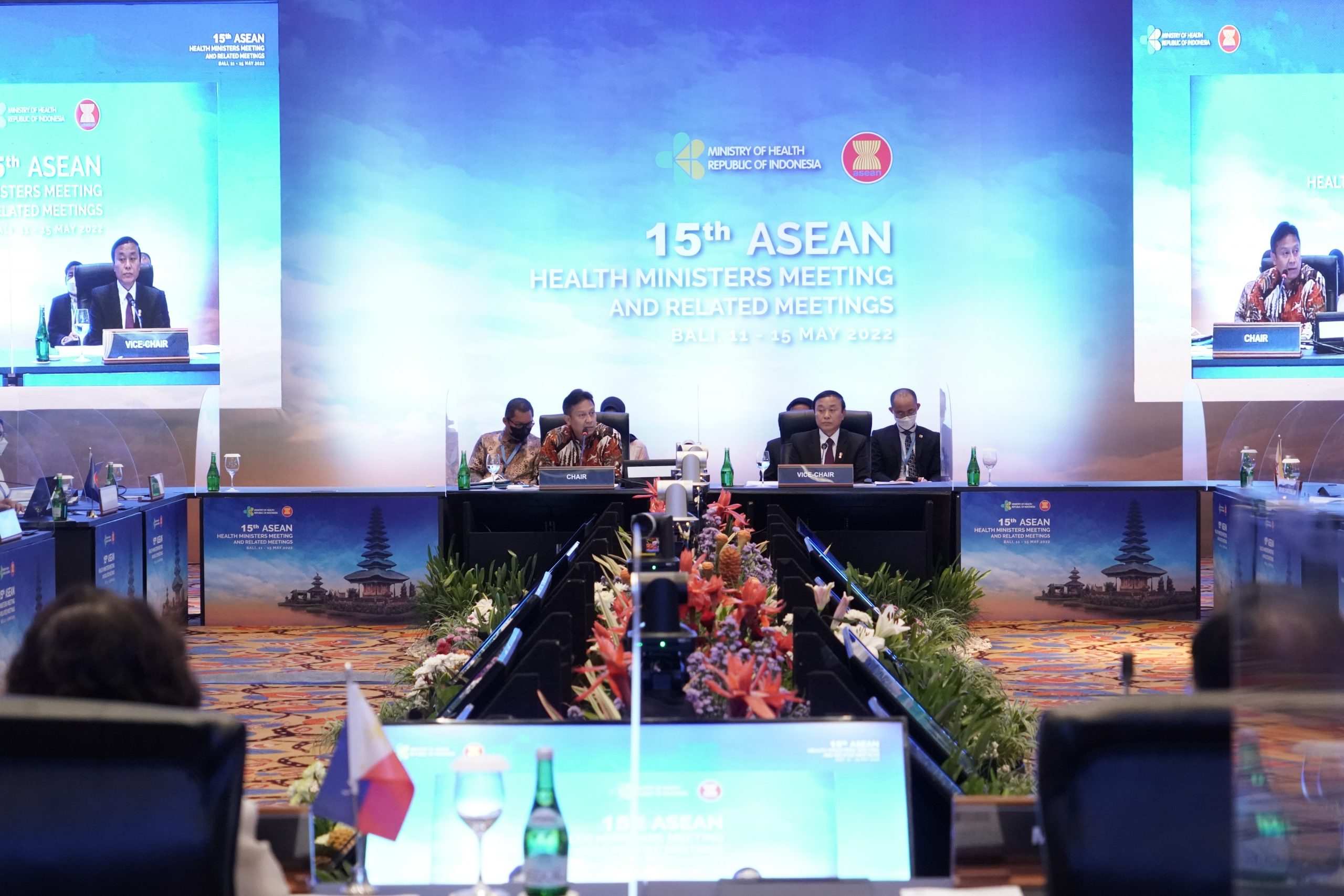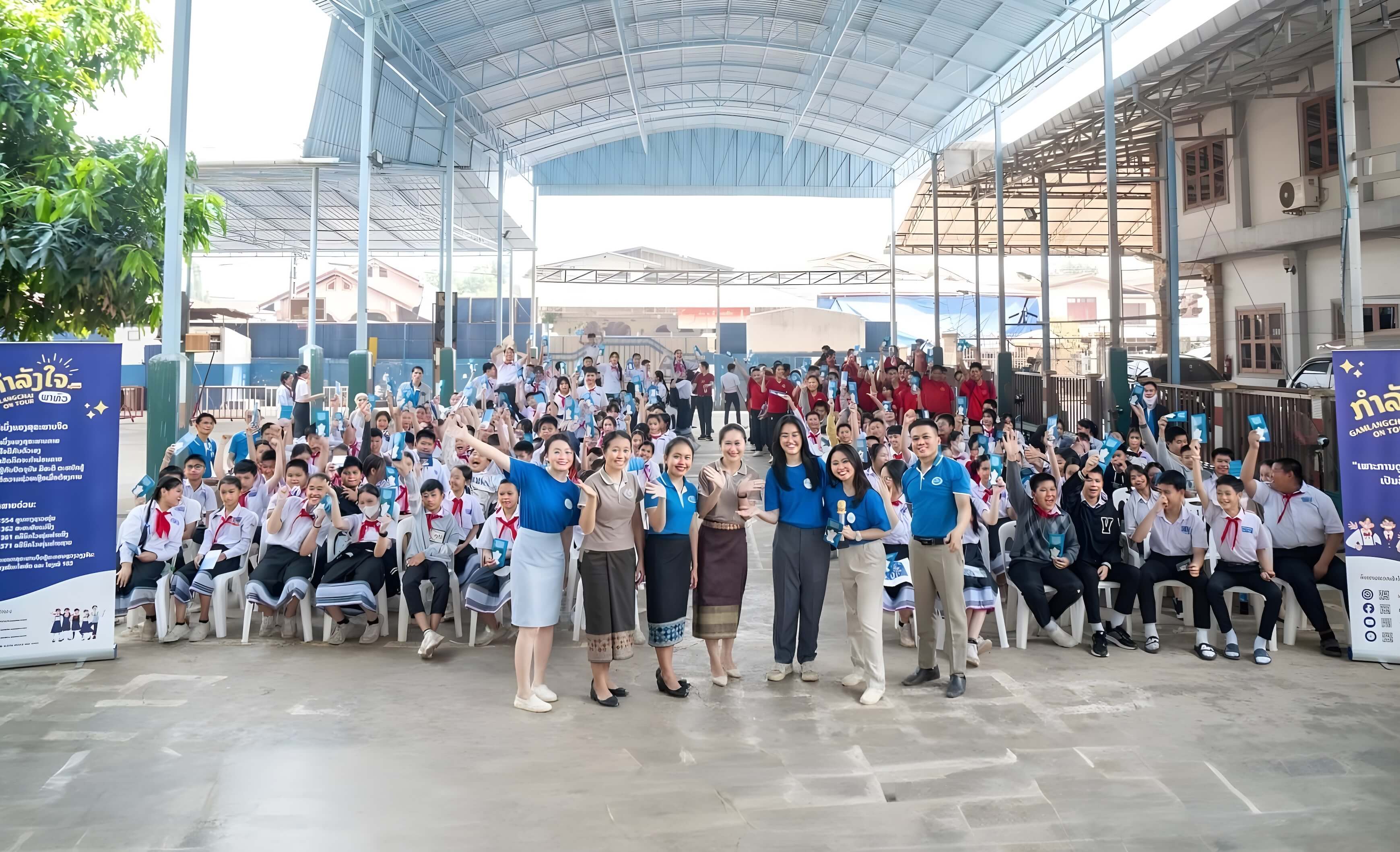



Recovering swiftly from the COVID-19 pandemic and building a crisis-resilient regional health system remain the top priorities of the ASEAN health sector.
Indonesian Health Minister Budi Sadikin stressed this during his opening remarks at the 15th ASEAN Health Ministers Meeting (AHMM) and Related Meetings held from 11 to 15 May 2022 in Nusa Dua, Bali.
Attended by health ministers and senior officials from across the region, the Deputy Secretary-General of ASEAN for the ASEAN Socio- Cultural Community (ASCC), and representatives from the World Health Organization, the meeting was the first major in-person event held by the sectoral body since the start of the pandemic. The main theme of the 15th AHMM, under the leadership of Ministry of Health-Indonesia, as the ASEAN Health Sector Chair, was “Advancing the Achievement of ASEAN Health Development.”
Rapid and enduring recovery from COVID-19 pandemic
Vaccination remains one of the key strategies of ASEAN Member States to resume normalcy. At the meeting, Deputy Secretary- General of ASEAN for the ASCC Ekkaphab Phanthavong shared that the ASEAN Secretariat had arranged with UNICEF the procurement and distribution of COVID-19 vaccine doses worth a total of 10 million US dollars, which various partners contributed through the COVID-19 ASEAN Response Fund. The allocated vaccine doses for ASEAN Member States, including ASEAN Secretariat, are equivalent to this financing cost.
To date, some ASEAN Member States have received either the allocated vaccines from UNICEF or the documents to process the delivery of these vaccines, said Deputy Secretary-General Phanthavong. The countries of Singapore, Malaysia and Indonesia have expressed the reallocation of their share to other ASEAN Member States, such as Myanmar and Lao PDR.
In the meeting, the health ministers also agreed on the mutual recognition arrangement of COVID-19 health certificates to enable ASEAN people to travel safely and securely to other ASEAN countries while upholding the prevailing laws and regulations on immigration and mandatory health protocols. The implementation of this mutual recognition through an ASEAN universal verification mechanism will be voluntarily rolled-out and can be embedded in the existing mechanisms of each ASEAN Member State.
The health ministers also adopted two regional mechanisms led
by Indonesia. These include the health protocol for pandemic preventive measures in public places and cross-border contact tracing and rapid outbreak investigation. Health experts had been tapped to support Indonesia’s Ministry of Health in the finalisation of these protocols.
Towards a resilient regional health system
With another possible pandemic looming on the horizon, the health ministers sought to fast-track the setting-up of the ASEAN Centre for Public Health Emergencies and Emerging Diseases (ACPHEED). Accordingly, the health ministers tasked its working arm, the Senior Officials Meeting on Health Development (SOMHD), to finalise the establishment agreement by September 2022.
The ACPHEED will further strengthen the region’s public health emergency preparedness, prevention, detection, and response capabilities, towards becoming a centre of excellence and regional resource hub. The functions of this centre will be hosted by the countries of Indonesia, Thailand, and Viet Nam, with the main secretariat based in Thailand. The tasks of each will be based on the pillars of prevention, detection, and response.
Health Minister Budi Sadikin emphasised the importance of preparedness and prevention, noting, “And it is a matter of ‘when,’ not ‘if,’ the next pandemic or public health emergency occurs. As ASEAN Health Ministers, we are responsible for preparing and protecting our people and future generations by building regional health system resilience while accelerating COVID-19 recovery.”
The health ministers also agreed to mobilise more resources for public health emergencies by exploring an expanded regional funding mechanism for COVID-19, turning it into an ASEAN Emergency Health Fund to support preparedness and prevention.
The health ministers also acknowledged the continuing role of existing regional mechanisms, such as the ASEAN Emergency Operations Centre Network for public health emergencies, ASEAN Risk Assessment and Risk Communication Centre, ASEAN Plus Three Field Epidemiology Training Network, and the ASEAN BioDiaspora Virtual Centre, in detecting and responding promptly to public health crises.
Partnerships to address health system gaps
During the five-day event, the health ministers and senior health officials also held meetings with their counterparts from the Plus Three countries, People’s Republic of China, the Republic of Korea, and the United States.
The dialogue partners expressed their support for the establishment of ACPHEED; the ongoing implementation and enhancement of regional and national capacities to assess risks and threats and to strengthen preparedness, prevention, detection, and response to public health emergencies; mitigation strategies to address current and future health threats; and efforts to increase access to vaccines, therapeutics, diagnostics, and other essential medical supplies.
They have committed to helping ASEAN bridge gaps in knowledge and capacity through technical assistance, training, and other capacity-building exercises in a wide range of areas, from universal health care to healthcare financing, and maternal and child health and medical services.








